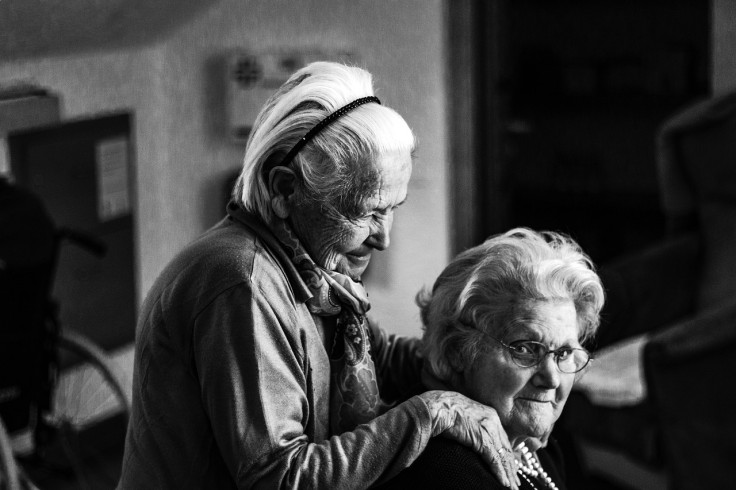
Home care is specific care given to individuals with special needs, such as people who are seniors, disabled, recovering from a surgery, and chronically ill. These services are donated or free out of charity and community services. However, most of the time they're covered by the individual's insurance.
The main goal of home care is to provide convenience to people who need medical attention and provide care in the comfort of their home. Even so, every person has different individual needs. That's why there are different kinds of home care, which offer various services.
Non-medical Care
This kind of home care has different names. Many people call it as personal care and companionship, homemaker care, home health aide services, senior care, companion care, or assistive care.
While many home care clients and providers call it in different ways, this home care type only does one thing in specific, and that is to accompany the clients. The caregiver services like how the client's family member will do. In general, the service is associated with everyday activities, such as:
- Self-care assistance: such as using the toilet, bathing, or dressing
- Safety assistance: such as ambulation, fall prevention, wheelchair transfer (e.g., from wheelchair to bed or toilet bowl and vice versa)
- House chores assistance: such as planning or making meals, doing the laundry, light housekeeping
- Escort/companionship: such as escorting clients to pay bills, run errands, or hang out
Round-the-clock supervision, especially for those who have Alzheimer's disease or dementia
As you notice, most of the caregiver's tasks are to provide personal care to the client. The service provided must be an ongoing basis based on the schedule in favor of the client's needs.
Depending on a client's status, the service can be 24/7 and can be live-in care. This is necessary, especially for Alzheimer's disease or dementia patients who need round-the-clock supervision.
Additionally, this type of personal care is a non-medical care service, so the service doesn't have to be prescribed by a doctor. However, in terms of medication, the caregiver should know what the attending physician of the client has advised.
Private Duty or Nursing Care
Nursing care often needs to stay 24/7 in the client's house as it will be providing care for clients with specific medical needs. Hence, they're called private duty nurses. They're going to provide medical-related service, so they have to follow the prescription of a doctor.
Like non-medical care, this type of home care also has different names, including catastrophic care, ventilator care, or catastrophic care. As these names imply, the private nurse has to provide services for people who are suffering from various diseases.
It may include giving service for those who have traumatic brain injury (TBI), amyotrophic lateral sclerosis (ALS), stroke, spinal cord injury (SCI), multiple sclerosis (MS), and many more. These services may include the following:
- Administering medications
- Vital signs monitoring
- Catheter care
- Feeding tube care
- Ventilator care
- Tracheostomy care
- Ostomy/gastrostomy care
Everything mentioned above should be provided timely and in a longer period of time. That's why most of the caregivers should give home-based skilled service, which is often hourly and long-term nursing care. Other caregivers, especially those who have their own families to take care of, can do shifting instead of doing in-home care, though.
Home Health Care
In contrast to nursing care, home health care provides short-term care that is primarily to prevent or recover from hospital stays, injuries, or illnesses. Sometimes, the doctor will visit the patient him/herself. This care offers the following services:
- Physical therapy
- Speech-language pathology
- Occupational therapy
- Home health aide services
- Short-term nursing services
- Medical social work
If the attending physician isn't available, a medicare-certified home health caregiver can give the physician-directed service, instead. However, unlike the non-medical nor nursing care, they aren't going to stay in a client's house for a long time. That's why this care is commonly called as visiting nurse services or intermittent skilled care.
The service given by specialized clinicians will mostly last for at least an hour, depending on what kind of consultation. The care will be on a short-term basis and continues until the patient's primary medical goal is achieved.
How to choose the right home care service?
The first and most important step to do is to undergo a professional consultation. Ask your patient or his/her attending physician about the medically best and safest arrangement for a home care service. Then, surf the Internet or do crowdsourcing. There are many home care providers in almost every state nowadays. However, not everyone provides excellent services.
If you're in Seattle, try to visit this site https://www.servewell.com/ and see whether their services fit your liking. They offer almost every service a client may need, including transportation, groceries and shopping, companionship, meal preparation, personal care/hygiene, housekeeping, lifestyle events, and medication reminders.